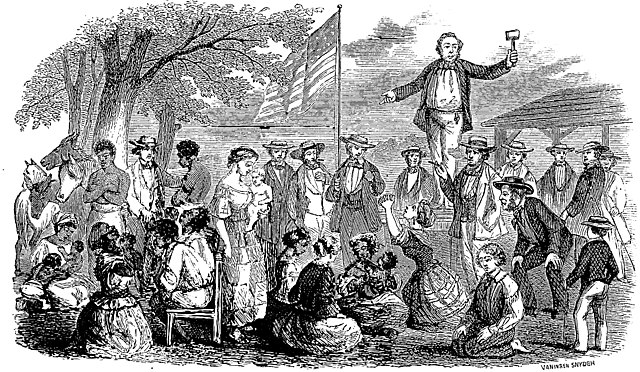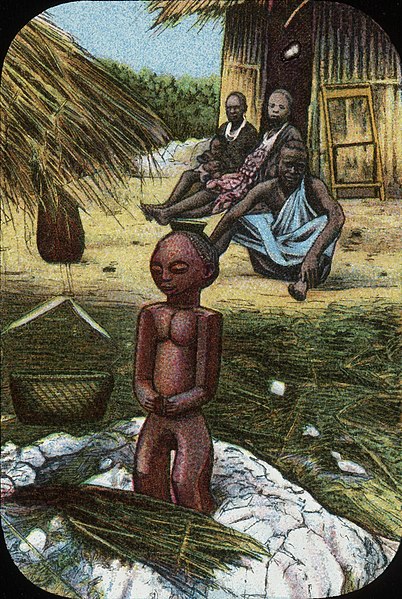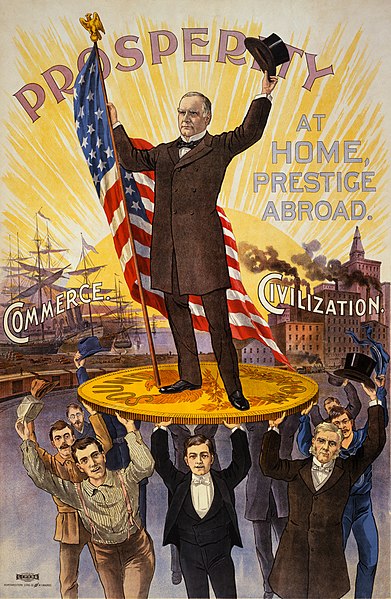Commodification is the process of transforming inalienable, free, or gifted things into commodities, or objects for sale. It has a connotation of losing an inherent quality or social relationship when something is integrated by a capitalist marketplace. Concepts that have been argued as being commodified include broad items such as the body, intimacy, public goods, animals and holidays.
Karl Marx considered commodity a cell-form of capitalism.
Human flesh at auction by Van Ingen Snyder.
Christmas
Valentine's Day
In Marxist philosophy, the term commodity fetishism describes the economic relationships of production and exchange as being social relationships that exist among things and not as relationships that exist among people. As a form of reification, commodity fetishism presents economic value as inherent to the commodities, and not as arising from the workforce, from the human relations that produced the commodity, the goods and the services.
Commodity fetishism: In the economics of the marketplace, the producers and the consumers of goods and services perceive each other as the money and merchandise they exchange.
A South African fetish figurine whose supernatural powers protect the owner and kin in the natural world (c. 1900)
A political poster shows gold coin as the basis of prosperity (c. 1896)
The Hungarian philosopher György Lukács developed Karl Marx's theory of commodity fetishism to develop reification theory.








